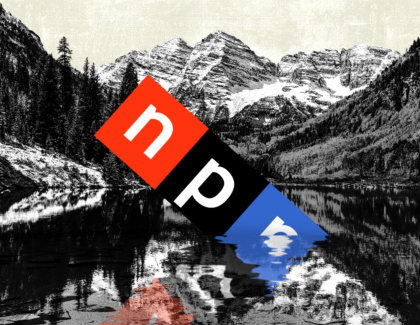Sign up for the daily CJR newsletter.
A piece in The Observatory last week lamented the fact that Rajenda Pachauri, the chairman of the Intergovernmental Panel on Climate Change (IPCC), was recently obliged to speak as a “human being” rather than as a scientist when recommending a specific target for reducing greenhouse-gas emissions. The column suggested this duality of opinion was a shortcoming among scientists that needed fixing.
But that view is unfair because it ignores the role that most scientists have traditionally played—and should play—in public policy.
The column argued that scientists should do better job of explaining their science and that a soon-to-be-released paper (pdf) by scholar Matt Nisbet adds weight to that argument. While I count Nisbet as a colleague and friend, that doesn’t mean we often agree.
The highly respected assistant professor of communications at American University has spent recent years promoting one idea—“Framing Science.” Nisbet, along with other opinion leaders, have called for researchers to adopt this new way of explaining their science, and for an increase in the number of scientists actually trying to communicate with the public.
Too few scientists are speaking out publicly and those who do aren’t very good at it, these leaders say.
But that doesn’t jive well with a new study by University of Wisconsin researchers, in the current issue of the journal Journalism & Mass Communication Quarterly. The study asked active and productive stem-cell researchers and epidemiologists about their own interactions with the media, their interest in entering the public debate, and their attitudes about communicating their science.
Of the more than 1,200 scientists who responded, nearly two-thirds said that they had interacted with journalists on science stories, therefore showing a willingness to take on science communication. But the paper’s authors also pointed out that the percentages differed little from similar studies done in the 1980s and 1990s.
When deciding whether or not to enter a science policy debate, the study found, researchers still worry that getting involved—or taking sides, as it were—could provoke criticism from their peers and compromise the perception of objectivity that is so import to scientific inquiry. That concern thwarts the “framing science” approach Nisbet and others have proposed.
The basic notion of framing, as I understand it, is that to effectively communicate information to an audience of readers, viewers or listeners, one has to tailor the message so that it corresponds to audience interests. These “frames,” as they’re called, are the architecture by which information is conveyed, the structure around which facts and context are built.
In essence, the teller of the tale determines the best path along which to lead the audience. Nisbet calls it “framing”–I call it “journalism,” but regardless of the vocabulary, simple semantics is not what divides us.
Central to his argument supporting framing is that this approach offers the best chance that readers/viewers/listeners will arrive at the “right” place at the end of the path. Thus, the communicator has a clear and specific goal in mind when he or she starts. But journalists and scientists, I was taught, should only inform—convincing, persuading, and marketing were simply not part of the job.
Nisbet argues that all communicators–even journalists-are selective in what information they impart, what’s included and excluded along the way. He’s right, of course, but in the case of journalists–the good ones at least–those choices aren’t made to sway the audience. They’re made to improve the storytelling.
Intent, it would seem, is where we part ways.
As a scholar who concentrates on communicating public policy, Nisbet’s focus logically centers on how best to impart information that supports or opposes an idea or cause. The complexity of modern science and its relevance to an ever-wider field of public policy issues have exacerbated this challenge and enhanced the need for high-quality science communications. Climate change, genetically modified crops, stem cell research, and evolution versus “intelligent design” are all issues that routinely confuse and worry the general public.
Traditionally, most scientists and researchers have assiduously avoided such debates, in part because there are few actual positive rewards in their scientific culture for speaking out, but also because of a historic cultural norm that doing so is something scientists “simply don’t do.”
Nisbet, and others, now advocate that scientists should reverse this past and get involved in the public science policy debates. In his upcoming paper, he neatly lays out the evolution of science’s weakness in communications over past decades and cites the promise that the present and near future offer if researchers will just adopt framing as their mode of communication.
What’s most worrisome is his assumption that scientists should naturally embrace this approach, and that they are skilled enough to succeed. Scientists deal in data. That’s where they’re most comfortable. They pursue knowledge for its own sake. Although obviously acknowledging its value to society, the commercialization or benefit of discovery is usually an afterthought, not a primary goal of their work.
And being the public face of science, or being perceived as an advocate for some science policy, carries very real risks to scientists’ careers. Most scientists still consider such activity an inappropriate form of self-promotion that can cast doubt on the impartiality of their work. While most researchers would philosophically agree that more active participation in public debate by scientists would be a good thing, there doesn’t seem to be any mad dash by researchers to enter the fray.
A survey earlier this year by the Pew Research Center for People & the Press showed that 70 percent of those asked said that scientists “contributed a lot” to society, beating out the clergy, journalists, lawyers, and business executives, in that order.
Would the public react the same if suddenly researchers started arguing positions rather than reporting findings?
Perhaps, but that still leaves a pragmatic question: Do scientists have the time to increase their efforts in the public science debate? Do they have the time to become more skilled in communications?
Research has gotten much more competitive in the last decade. The size of funding awards, on average, has dropped; at the same time, the number of researchers vying for federal grants has risen. The stakes are already high, and scientists routinely complain about the demands already placed on them.
In 2007, more than 6,000 researchers responded to a survey (pdf) by the Federal Demonstration Project intended to gauge how scientists spent their time while working on federal research grants. The report said that 42 percent of the researchers’ time was now “devoted to pre- and post-award administrative activities – not to active research,” and that compliance issues–adherence to regulations and the simple management of projects– stole time away from their doing the actual science.
Given the choice, scientists would rather do the science instead of other ancillary tasks. And that’s how it should be. It’s unfair to expect scientists, as a community, to undertake a greater role in communications about their fields, regardless of the societal good that might come from it.
Has America ever needed a media defender more than now? Help us by joining CJR today.






